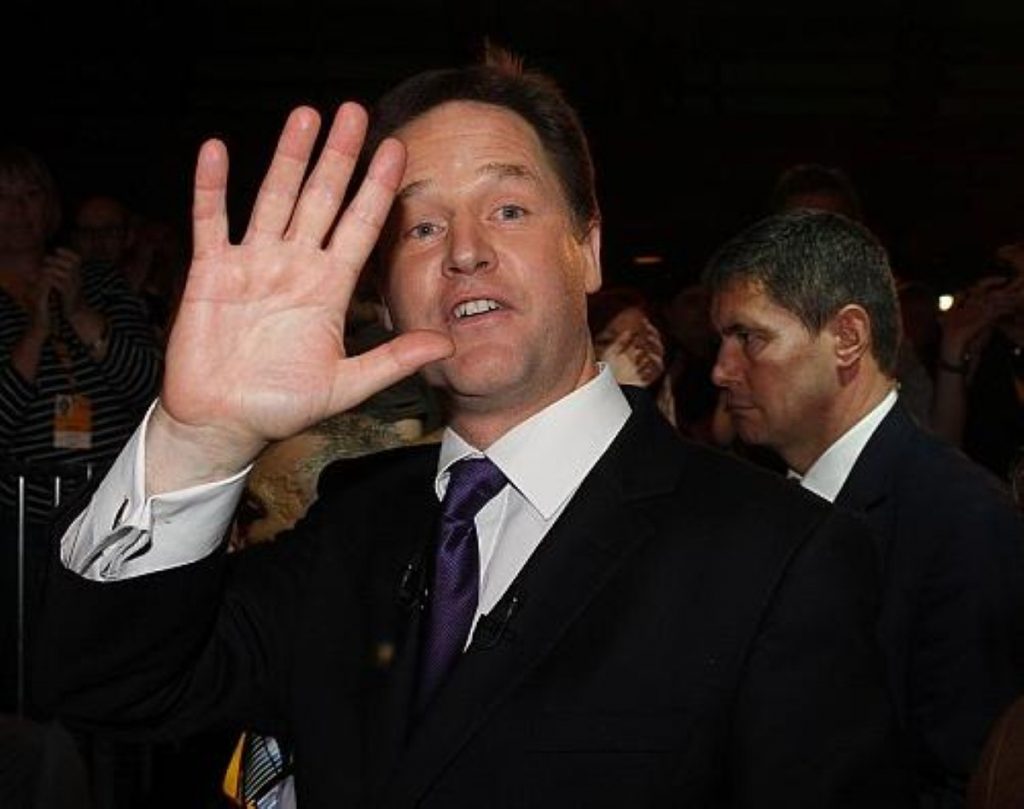Consensus still elusive on Lords reform
By Alex Stevenson Follow @alex__stevenson
Here's some brief notes about developments on the nitty-gritty of constitutional reform, from today's deputy prime minister's questions.
Lords reform
Today's session was a key opportunity for Clegg to reach out to shadow justice secretary Sadiq Khan to try and get the opposition's backing for reform of the House of Lords. Labour has been sending signals that it may only support a fully elected second chamber, rather than the 80% elected House which Clegg the pragmatist may be prepared to settle for. Only yesterday I had argued the Liberal Democrat leader was in danger of falling into bad habits of confrontation, at precisely the moment when a unified Commons is critical ahead of the coming clash with the Lords.


Clegg explained: "I and my party start from the simple principled point that, in common with many other bicameral systems around the world, it is sensible to have both chambers directly legitimised by—"
Khan then interrupted, asking: "Fully?" Clegg responded tetchily, but at least in the affirmative. "Yes, of course fully," he said. "I support a fully elected second chamber. The right hon. gentleman's party achieved precisely 0% of election to the other chamber. I modestly suggest that if we achieve 80%, that will be better than 0%."
Not especially friendly language, but at least it's progress on yesterday.
Meanwhile the Lords has decided to extend the work of the joint committee of MPs and peers exploring the government's proposals. This is something of a tacit admission that there is limited progress being made on consensus – but also thoroughly predictable, as these committees tend to be rather unwieldy beasts.
The delay shouldn't affect Clegg's reform timetable, as he hopes to publish the Lords reform bill in the Queen's Speech next spring. But if MPs and peers fail to reach agreement, even with the extra time they now have available to them, it will be a dangerous signal that there is trouble ahead.
Lobbying
Proposals for a register were supposed to be brought forward by the end of November. Now they're not due until "early in the new year", whatever that means. A consultation will then take place on them to make sure, as Tory MP James Gray put it, "perfectly legitimate" charities and other 'good' lobbying organisations aren't unfairly hit.
Voter registration
Changes to voter registration rules pose a particular political threat to ministers over the votes of armed forces – always an emotive subject, given they are prepared to lay down their lives for their country. Clegg hopes to neutralise this by extending the timetable for parliamentary elections from 17 to 25 days, extending the voting period, and by keeping service personnel on the register until their service declaration expires.












